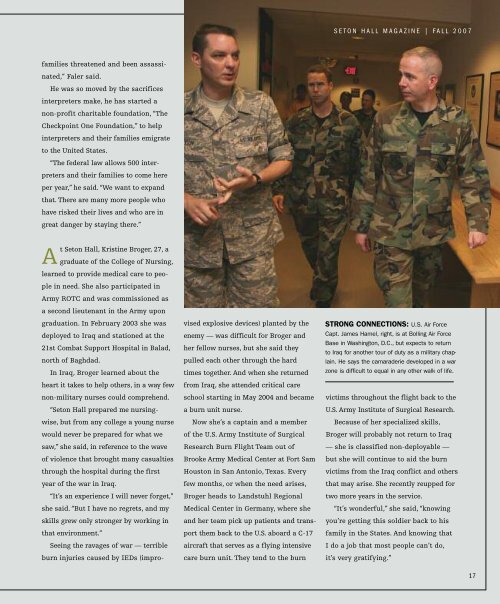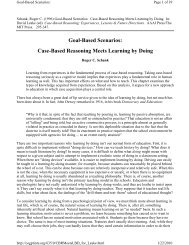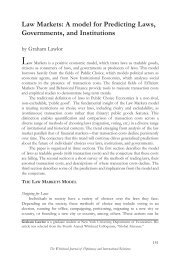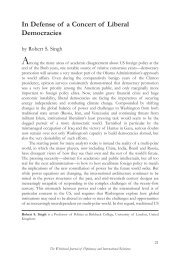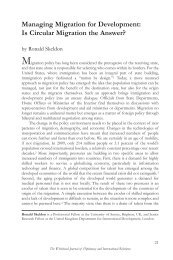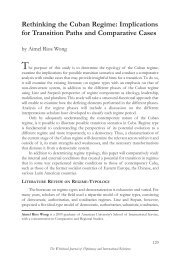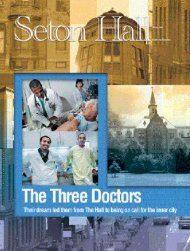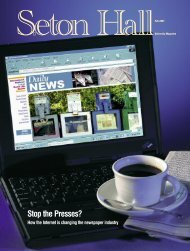fall 2007 - Seton Hall University
fall 2007 - Seton Hall University
fall 2007 - Seton Hall University
Create successful ePaper yourself
Turn your PDF publications into a flip-book with our unique Google optimized e-Paper software.
families threatened and been assassinated,”<br />
Faler said.<br />
He was so moved by the sacrifices<br />
interpreters make, he has started a<br />
non-profit charitable foundation, “The<br />
Checkpoint One Foundation,” to help<br />
interpreters and their families emigrate<br />
to the United States.<br />
“The federal law allows 500 interpreters<br />
and their families to come here<br />
per year,” he said. “We want to expand<br />
that. There are many more people who<br />
have risked their lives and who are in<br />
great danger by staying there.”<br />
At <strong>Seton</strong> <strong>Hall</strong>, Kristine Broger, 27, a<br />
graduate of the College of Nursing,<br />
learned to provide medical care to people<br />
in need. She also participated in<br />
Army ROTC and was commissioned as<br />
a second lieutenant in the Army upon<br />
graduation. In February 2003 she was<br />
deployed to Iraq and stationed at the<br />
21st Combat Support Hospital in Balad,<br />
north of Baghdad.<br />
In Iraq, Broger learned about the<br />
heart it takes to help others, in a way few<br />
non-military nurses could comprehend.<br />
“<strong>Seton</strong> <strong>Hall</strong> prepared me nursingwise,<br />
but from any college a young nurse<br />
would never be prepared for what we<br />
saw,” she said, in reference to the wave<br />
of violence that brought many casualties<br />
through the hospital during the first<br />
year of the war in Iraq.<br />
“It’s an experience I will never forget,”<br />
she said. “But I have no regrets, and my<br />
skills grew only stronger by working in<br />
that environment.”<br />
Seeing the ravages of war — terrible<br />
burn injuries caused by IEDs (impro-<br />
vised explosive devices) planted by the<br />
enemy — was difficult for Broger and<br />
her fellow nurses, but she said they<br />
pulled each other through the hard<br />
times together. And when she returned<br />
from Iraq, she attended critical care<br />
school starting in May 2004 and became<br />
a burn unit nurse.<br />
Now she’s a captain and a member<br />
of the U.S. Army Institute of Surgical<br />
Research Burn Flight Team out of<br />
Brooke Army Medical Center at Fort Sam<br />
Houston in San Antonio, Texas. Every<br />
few months, or when the need arises,<br />
Broger heads to Landstuhl Regional<br />
Medical Center in Germany, where she<br />
and her team pick up patients and transport<br />
them back to the U.S. aboard a C-17<br />
aircraft that serves as a flying intensive<br />
care burn unit. They tend to the burn<br />
S E T O N H A L L M A G A Z I N E | F A L L 2 0 0 7<br />
STRONG CONNECTIONS: U.S. Air Force<br />
Capt. James Hamel, right, is at Bolling Air Force<br />
Base in Washington, D.C., but expects to return<br />
to Iraq for another tour of duty as a military chaplain.<br />
He says the camaraderie developed in a war<br />
zone is difficult to equal in any other walk of life.<br />
victims throughout the flight back to the<br />
U.S. Army Institute of Surgical Research.<br />
Because of her specialized skills,<br />
Broger will probably not return to Iraq<br />
— she is classified non-deployable —<br />
but she will continue to aid the burn<br />
victims from the Iraq conflict and others<br />
that may arise. She recently reupped for<br />
two more years in the service.<br />
“It’s wonderful,” she said, “knowing<br />
you’re getting this soldier back to his<br />
family in the States. And knowing that<br />
I do a job that most people can’t do,<br />
it’s very gratifying.”<br />
17


